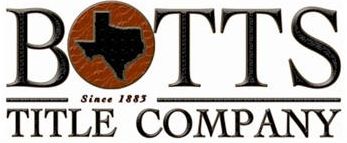Glossary of Terms
ADJUSTABLE RATE LOAN (ARM)
A mortgage loan in which the interest rate may increase or decrease over the course of the loan depending on specific economic indicators. Differs from a fixed rate loan where the interest rate remains the same throughout the loan term.
AMORTIZATION
A process of gradually paying off a debt by making equal periodic payments of principal and interest on a loan at equal intervals of time. Eg. ($500.00 per month for 30 years)
APPRAISAL
An estimate of a property’s valuation by an appraiser.
APR (ANNUAL PERCENTAGE RATE)
Rate of interest charged on a loan that takes into account all up-front fees and points.
ASSESSED VALUE
A value placed on a property by a public officer (assessor) or a board as basis for property taxes.
ASSUMABLE MORTGAGE
A mortgage that is transferred to the buyer who then becomes personally liable for the terms and conditions including payments.
CLOSING
The actual transfer of title for money or other consideration. This is the day that parties actually consummate a deal.
CONTINGENCY
A provision in a contract that requires that a certain act be done or a certain event occur before the contract becomes binding, (i.e. When it is necessary for a person to sell their existing home before they can close on a new home.)
CLOUD ON TITLE
An outstanding claim or encumbrance that would impair the title. Eg.( mechanics lien, judgments, etc.)
CONVENTIONAL LOAN
A loan not insured or guaranteed by a government.
DEED
A written instrument that, when executed and delivered, conveys title to or an interest in real estate.
DISCOUNT POINTS
An added loan fee charged by a lender to make the yield on a lower than market value loan competitive with higher interest rate loans. One point is equal to one percent of the loan.
DOWN PAYMENT
The amount of cash that a purchaser puts down to buy property.
EQUITY
The value of a property over and above any mortgage indebtedness. Eg. (Your house is worth $80,000 market value and you have a current mortgage balance of $60,000 therefore, your equity would equal $20,000.)
ESCROW ACCOUNT
An account usually established by the lender to make payments for hazard insurance and property taxes. Your monthly payment will include enough money to pay principal and interest to the bank for the loan as well as enough money to pay 1/12 of the annual taxes and insurance which gets deposited into the escrow account. This process protects the bank by insuring that the property remains insured and that the property is not taken through a process known as in-rem for unpaid taxes.
FHA LOAN
A loan insured by the Federal Housing Administration and made by an approved lender.
HUD-1 SETTLEMENT STATEMENT
A closing statement that outlines all costs associated with a real estate transaction.
LIEN
A right given by law to certain creditors to have their debt paid out of the property of a defaulting debtor. Court judgments become liens against a person’s real property. Liens and judgments are recorded at the county clerk’s office and are considered public information.
LOAN ORIGINATION FEE
Same as discount points. A point is equal to 1% of the loan.
LOAN PROCESSING FEE
A flat fee charged by lenders for administration of the loan process. Some banks waive this fee.
MARKET VALUE
The actual value of property at a specific time. Eg. (What your house would sell for today if you were to decide to sell.)
MORTGAGE
A pledge of real estate as security for the payment of a debt. Simply put, a mortgage is a recorded document that tells the lender that the borrower pledged their real estate as collateral for a loan.
PITI
An abbreviation for principal, interest, taxes and insurance and generally referring to an all encompassing monthly payment on a mortgage to a lender. Lenders use this figure to pre-qualify a buyer.
PMI
An abbreviation for private mortgage insurance. Lenders require PMI when the loan to value exceeds 80%. PMI insurance as a rule of thumb costs approximately 1% of the loan amount per year. The cost is generally added to the monthly payment.
PRE-QUALIFICATION
A process where a lender or a REALTOR determines how large a monthly payment a purchaser can afford.
PRINCIPAL
The amount of money that a borrower owes on a loan at a given time.
TITLE
Evidence of ownership.
TITLE INSURANCE
Insurance that guarantees a return of your investment should a title problem arise after you take possession. There are two types of title insurance. 1) A fee title policy insures the owners title. 2) A mortgagee title policy insures the lender for the mortgaged amount. Most lenders require the purchaser to pay for a mortgagee policy to indemnify the lender.
TRUTH IN LENDING DISCLOSURE (RESPA)
A federal law commonly known as the real estate settlement and procedures act that requires certain disclosures to consumers about mortgage loan settlements. The law also prohibits the payment or receipt of kickbacks.
